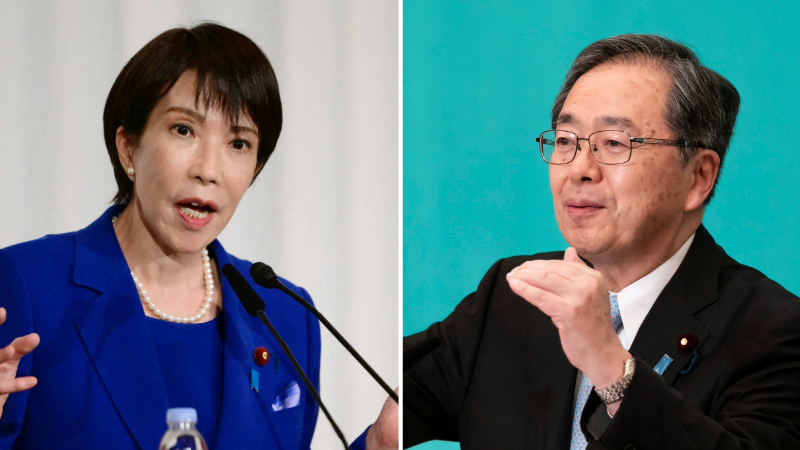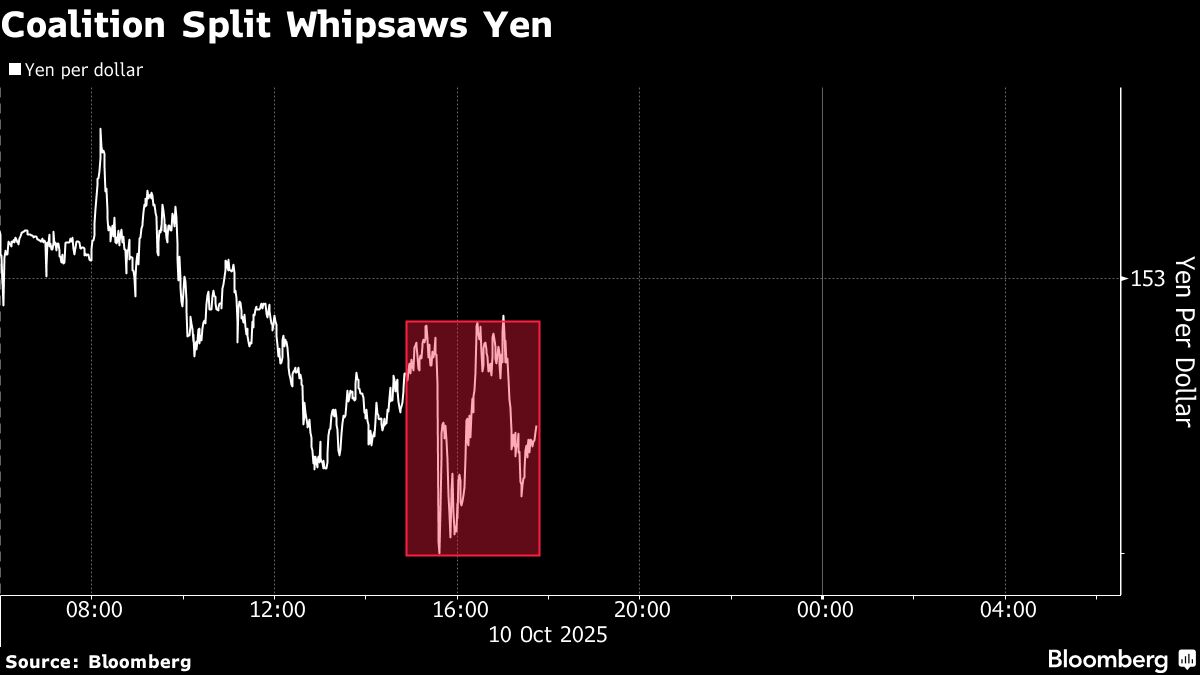
Japan’s governing coalition collapsed Friday, delivering a major blow to new ruling party leader Sanae Takaichi and jolting markets as a key partnership that has contributed to stability in politics for the past quarter century fell apart.
Talks between Liberal Democratic Party chief Takaichi and junior partner Komeito leader Tetsuo Saito ended without agreement on Friday, in a major setback for the new LDP leader before she has even secured the role of prime minister.
While Takaichi scrambled to keep the door open on talks, expressing a desire to meet again next week, Saito slammed it shut, saying the party wouldn’t back LDP electoral candidates or vote for Takaichi to become premier. He said support on specific policies was still possible.
“Given our relationship of cooperation spanning 26 years, including our time in opposition, we deeply regret that this conclusion was reached,” Takaichi said. “We were unilaterally informed of their withdrawal from the coalition.”
The move puts Takaichi very much on the back foot as she looks to shore up a minority government already struggling to find the numbers to pass budgets or any meaningful legislation. The collapse also comes with Japan facing a crammed diplomatic schedule with regional summits later this month and the expected visit of US President Donald Trump.
At the heart of the disagreement was the need for the LDP to do more to regulate political donations after a scandal that engulfed the party and enraged the public.
Saito said he asked Takaichi for stricter rules on party funding in order to regain public trust, but didn’t get a strong commitment from his counterpart.
“The response we received from the LDP on funding issues was insufficient — essentially they said they would consider it going forward,” Saito said. “We are bringing a close to our relationship.”
ALSO READ: Concerns aired over Japan's LDP coalition
Takaichi suggested she had been blindsided by a one-day ultimatum to agree to Komeito’s proposals on party funding. She said she needed at least three days to consult with her party before agreeing to anything.
Markets whip-sawed as the news came out. The yen initially strengthened to 152.39 before giving up gains then strengthening again. It was hovering around the 152.68 mark late Friday afternoon.

Given the political chaos it may become more difficult for the Bank of Japan to consider raising interest rates in the near-term, a factor that might feed into further yen weakness. But a softer yen may also put policymakers in an awkward spot, especially if it heads close to 160 against the dollar, near the mark where the government has needed to intervene in markets.
Kazuo Momma, former BOJ executive director in charge of monetary policy, said that a weak yen is more important for the BOJ in deciding monetary policy than political instability.
“If the yen declines to 155 or 160, a rate hike is possible at the end of this month,” Momma said in an interview Friday. “We don’t know who is going to be a prime minister but if it’s Takaichi and the yen is at 160, that would be a huge blow as inflation is the biggest problem Japanese public is confronting. The government would rather welcome BOJ’s rate hike in that case.”
While the stock market had already closed when the first report emerged of the coalition collapse, analysts pointed to the likelihood of falls to come when the market reeopens from a long weekend on Tuesday.
“Depending on how the political situation unfolds, but if things remain as they are, I expect the Nikkei average to decline after the holidays,” said Jumpei Tanaka, head of investment strategy at Pictet Asset Management Japan. “Foreign investors are likely to respond during the holiday period by selling futures.”
The demise of the coalition will leave Takaichi quickly searching for allies among the opposition. It seems unlikely she would be able to form a solid partnership in time for the parliamentary vote, given the need to install a premier before the international summits.
But she has already made friendly signals to opposition parties including the populist Democratic Party of Japan and the Osaka-based Japan Innovation Party. Both have already offered support to the LDP over the past year, providing a base for further cooperation.
READ MORE: Japan’s wage growth slows, underscoring challenge for Takaichi
Still, there’s also a chance that opposition parties might try to come up with an alternative administration and possible premier candidate to take on Takaichi in the meantime. DDP chief Yuichiro Tamaki said he had been in touch with Saito.
“I would suspect that the LDP will reach out to the DPP and Japan Innovation Party even though they may not form a coalition government immediately,” said Hiroyuki Ueno, chief strategist, Sumitomo Mitsui Trust Asset Management. “So the next government will be a bit fragile and it probably means another election has become more likely.”


